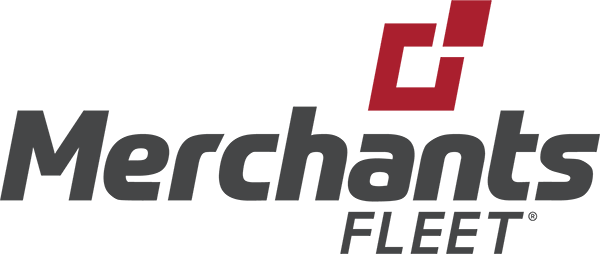Tariff Updates:
4/21/25
Last week, the administration announced a 90-day pause on most of the recently proposed tariffs. While this temporary measure offers short-term relief and an opportunity to reassess supply chain plans, it does not impact the tariffs already in place on the automotive industry — including the 25% levy on imported vehicles and duties on steel, aluminum, auto parts, which remain firmly in effect.
OEM Pricing Updates
Ford: Fleet orders placed before any future pricing changes will be price protected.
Stellantis: No current changes to pricing, incentives, or protection have been reported.
GM: Orders placed under signed CAP agreements will be price protected at the time of order entry.
Impact on Remarketing
The expectation of higher purchase prices on new vehicles is already beginning to impact the used market. Values are up over 4% in the first 15 days of April compared to the same period last year, and wholesale supply continues to decline. However, used vehicle prices are still lower than they were at the start of the year, presenting a valuable window of opportunity to take advantage of today’s more favorable resale environment.
For those looking to move quickly, Merchants’ Ready Fleet offers a smart solution—providing immediate access to in-stock vehicles that can be deployed without delay. It’s a flexible, fast-track option for meeting your fleet needs while keeping costs predictable.
Our Recommendation
To help mitigate the risk of price increases and ensure the best available rates, we strongly recommend placing factory orders as soon as possible. Waiting could result in increased costs if OEMs adjust pricing in response to ongoing tariff changes.
3/28/25
This week, the administration announced a 25% tariff on autos and auto parts not produced in the U.S., set to take effect on April 2. While foreign automakers will be most directly impacted, the effects will extend to domestic manufacturers as well—many of whom, including GM and Ford, produce a significant portion of their vehicles abroad.
In 2024 alone, more than seven million vehicles were imported into the U.S., and nearly 50% of the models assembled in the U.S. rely on parts sourced from Canada and Mexico. The result is a sweeping industry impact that will likely affect pricing, production timelines, and vehicle availability across the board.
Industry analysts anticipate that these tariffs will lead to higher vehicle prices, with some estimating increases of several thousand dollars per unit. With approximately 45% of U.S.-sold vehicles imported—many from Mexico and Canada—the ripple effect of these tariffs will likely be widespread. The actual price impact will vary by manufacturer, depending on how much of the cost each chooses to absorb versus pass along to clients.
Brands such as Volvo, Mazda, and Volkswagen, which produce the lowest share of their U.S.-sold vehicles domestically, are expected to see the greatest impact. Other major automakers like Toyota, Hyundai-Kia, Mercedes, and BMW also manufacture less than half of their U.S.-sold inventory within the country.
We strongly recommend placing orders now to mitigate the financial impact to your fleet.
We are actively monitoring the situation and will continue to provide updates as more information becomes available. If you have any questions or would like to discuss your fleet strategy, please don’t hesitate to reach out to your Merchants representative.
3/21/2025
- The administration’s one-month delay on tariffs affecting vehicles and parts from Canada and Mexico is expiring, and all indications are that they will take effect on April 2nd.
- At this time, most manufacturers have not taken an official position on how they will address potential price increases or whether production may shift back to the U.S. Meanwhile, dealership supply remains high at 89 days on average for February, with OEMs indicating a short-term surplus in the market. However, industry projections estimate that these tariffs could add up to $12,000 to the average vehicle price over time.
- Additionally, our upfitting partners are beginning to indicate potential cost increases between 5-10%, driven by tariffs on imports from China and raw materials sourced from Canada and Mexico.
What This Means for You
Given the anticipated cost increases, we strongly recommend placing orders now to secure current pricing and help mitigate financial impact to your fleet.
3/4/2025
New tariffs are introducing cost volatility that will impact vehicle prices, parts availability, and supply chains. While the administration has temporarily suspended tariffs on the automotive industry, this delay adds another layer of uncertainty, making it even more important for fleet operators to stay informed and proactive.
If implemented, the tariffs could drive up costs for critical vehicle components, affecting both imported and U.S.-assembled models. Here’s what you need to know:
Rising Vehicle Costs
- Higher prices for new vehicles are likely due to increased costs of imported components like batteries, semiconductors, and electronics
- Even U.S.-assembled vehicles are likely to see price hikes due to reliance on foreign parts
Tighter Used Vehicle Market
- Demand for used vehicles is likely to increase as companies seek cost-effective alternatives
- Reduced availability may drive up prices, making procurement more challenging
Increased Maintenance & Repair Costs
- Higher prices for replacement parts are expected to impact service and repair expenses
- Potential delays in parts availability, could lead to longer vehicle downtime
Insurance Premium Increases
- Rising vehicle values could result in higher insurance costs
- Increased repair costs may lead to higher claims and policy adjustments
We’re Here to Help You Stay Ahead
With tariffs in flux, it’s important to stay proactive in navigating these changes by keeping a close eye on pricing trends and reviewing your procurement strategies with your Merchants representative.
Keep an eye on your inbox for ongoing insights to help you manage these challenges, and if you have any questions or would like to discuss the potential impact on your fleet, please reach out.

